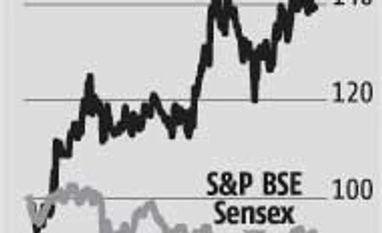A strong rebound in compressed natural gas (CNG) volumes, which grew 8.4 per cent year-on-year (y-o-y), was the highlight of Indraprastha Gas (IGL)’s results for the March quarter (Q4). Notably, this is the fastest volume growth in this segment (78 per cent of IGL’s revenues) over the past eight quarters. CNG volumes grew in a narrow band of two to six per cent in these eight quarters. Volume growth in piped natural gas, too, was at a multi-quarter high of 8.9 per cent, though slightly lower than analysts’ estimates of 10-12 per cent. Overall, volumes grew 8.4 per cent in Q4.
Falling realisations, though, took some sheen off the top line, which fell 3.4 per cent year-on-year to Rs 882 crore and missed the Bloomberg consensus estimate of Rs 920 crore. Strong gains in earnings before interest, taxes, depreciation and amortisation (Ebitda) margin fuelled earnings, which grew 12.3 per cent y-o-y to Rs 108 crore and were in line with the estimate of Rs 109 crore. the cost of IGL’s key input, natural gas, fell 674 basis points to 59.5 per cent in Q4 and enabled a 308 basis points Ebitda margin expansion to 22.3 per cent, compared to the year-ago period. Margin gains could have been higher but for price cuts.
The company’s monopolistic position in Delhi, strong return ratios and improving margin trajectory are some of the reasons why analysts are positive on IGL. In fact, Bloomberg consensus estimates peg IGL's Ebitda margin at 22.8 per cent in FY17, an increase of 183 basis points over FY16.
The scrip currently trades at 15 times the FY17 estimated earnings and appears fairly valued. While the business case appears strong, any sharp, unprecedented rise in gas prices is a risk factor.
Falling realisations, though, took some sheen off the top line, which fell 3.4 per cent year-on-year to Rs 882 crore and missed the Bloomberg consensus estimate of Rs 920 crore. Strong gains in earnings before interest, taxes, depreciation and amortisation (Ebitda) margin fuelled earnings, which grew 12.3 per cent y-o-y to Rs 108 crore and were in line with the estimate of Rs 109 crore. the cost of IGL’s key input, natural gas, fell 674 basis points to 59.5 per cent in Q4 and enabled a 308 basis points Ebitda margin expansion to 22.3 per cent, compared to the year-ago period. Margin gains could have been higher but for price cuts.
The company’s monopolistic position in Delhi, strong return ratios and improving margin trajectory are some of the reasons why analysts are positive on IGL. In fact, Bloomberg consensus estimates peg IGL's Ebitda margin at 22.8 per cent in FY17, an increase of 183 basis points over FY16.
The scrip currently trades at 15 times the FY17 estimated earnings and appears fairly valued. While the business case appears strong, any sharp, unprecedented rise in gas prices is a risk factor.
)